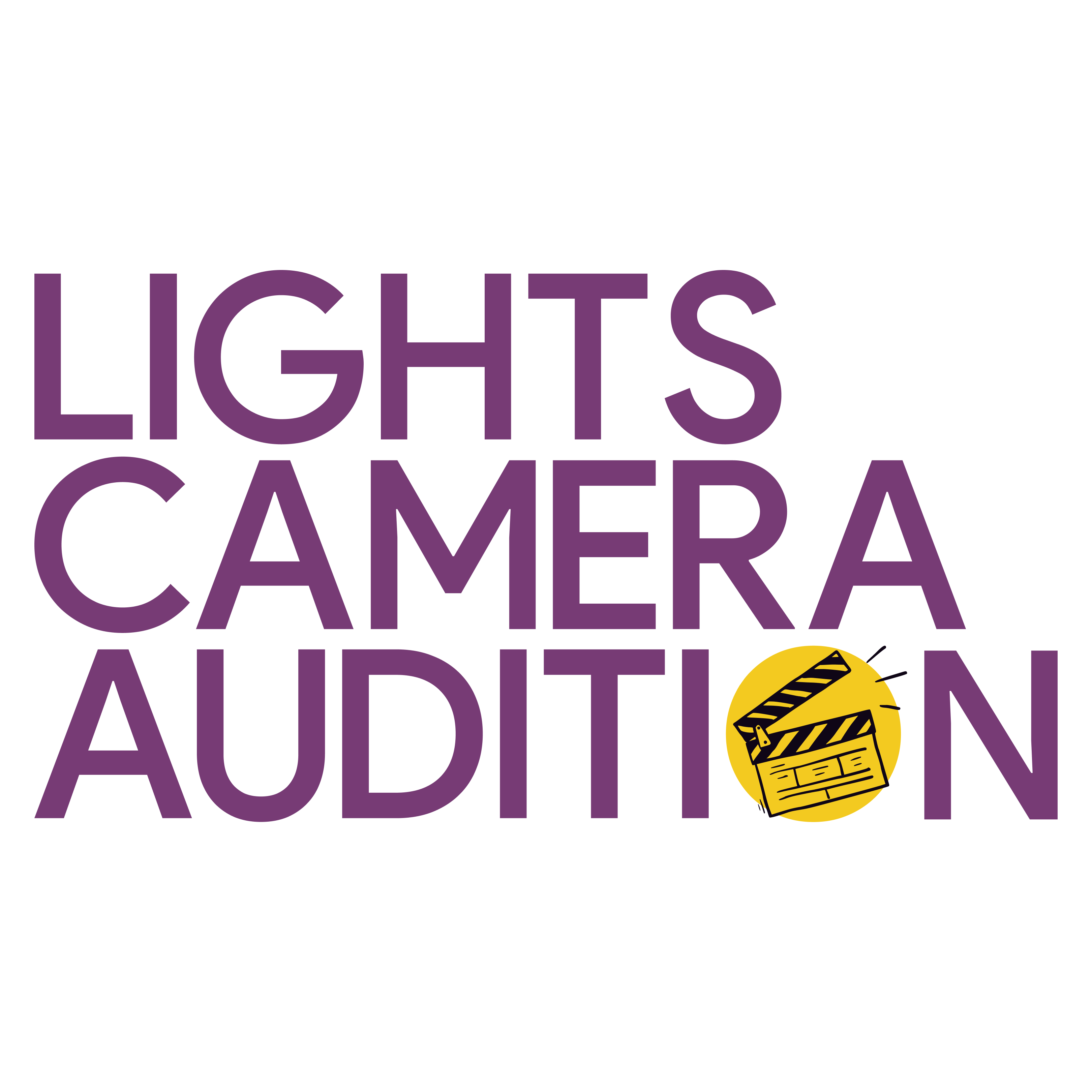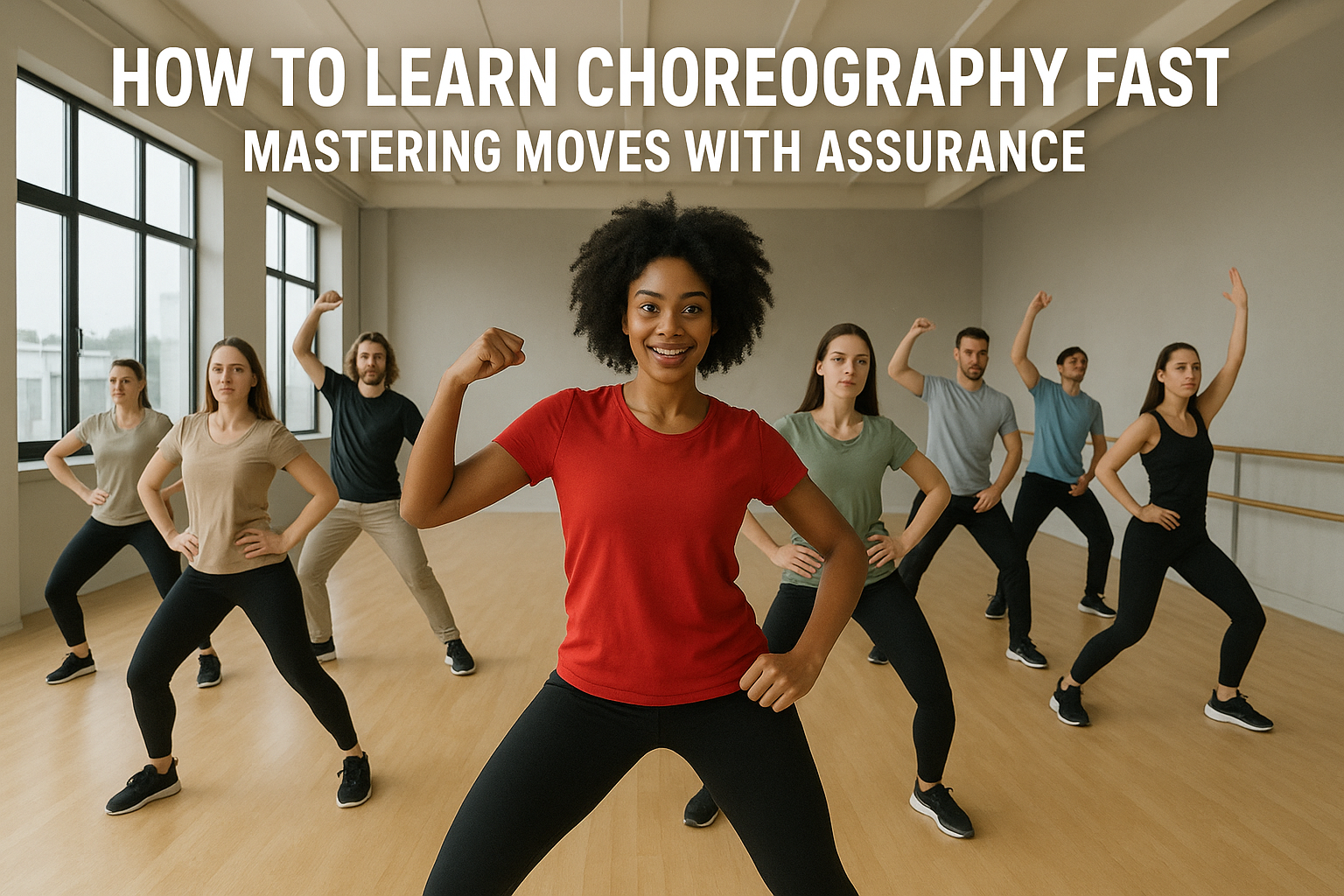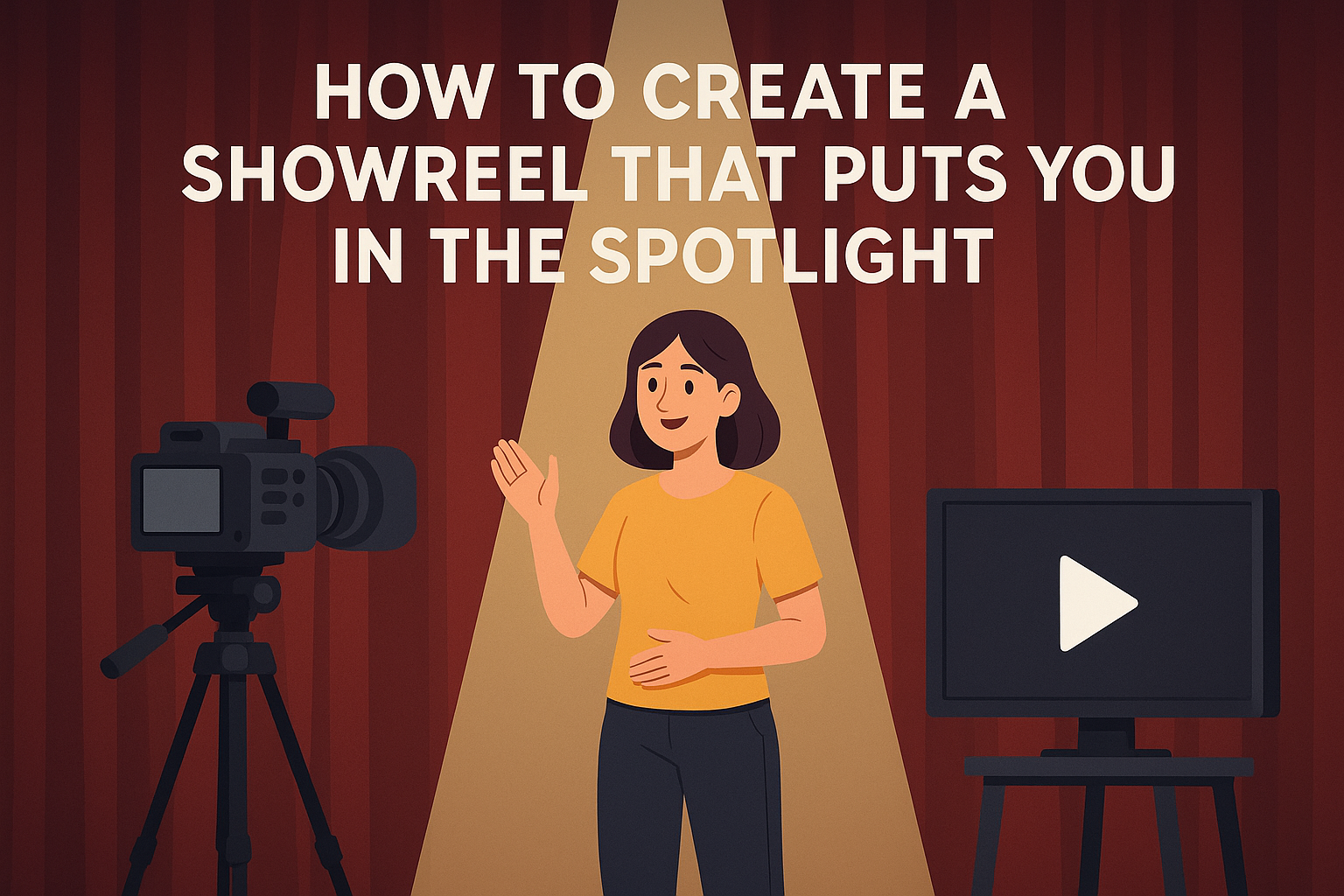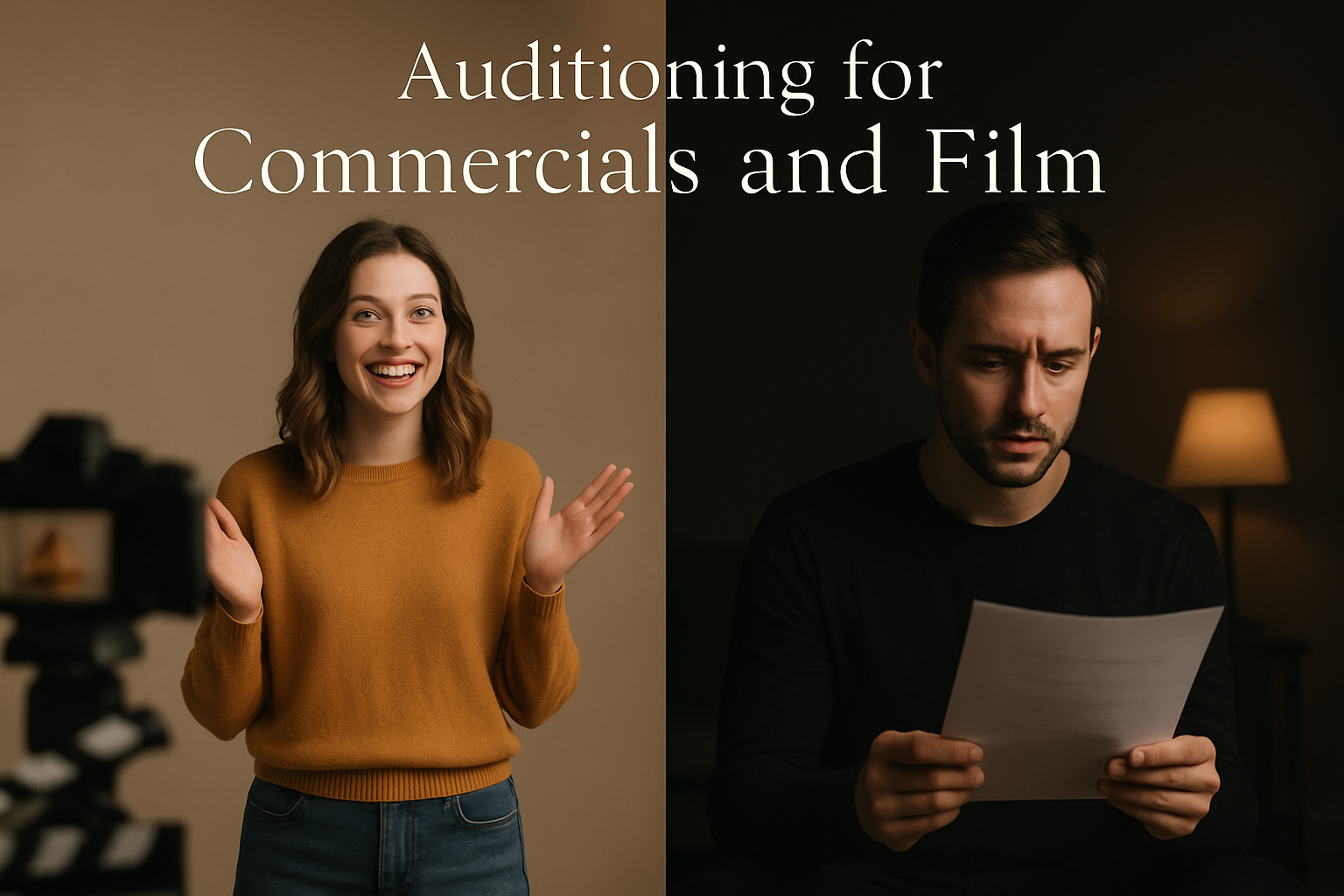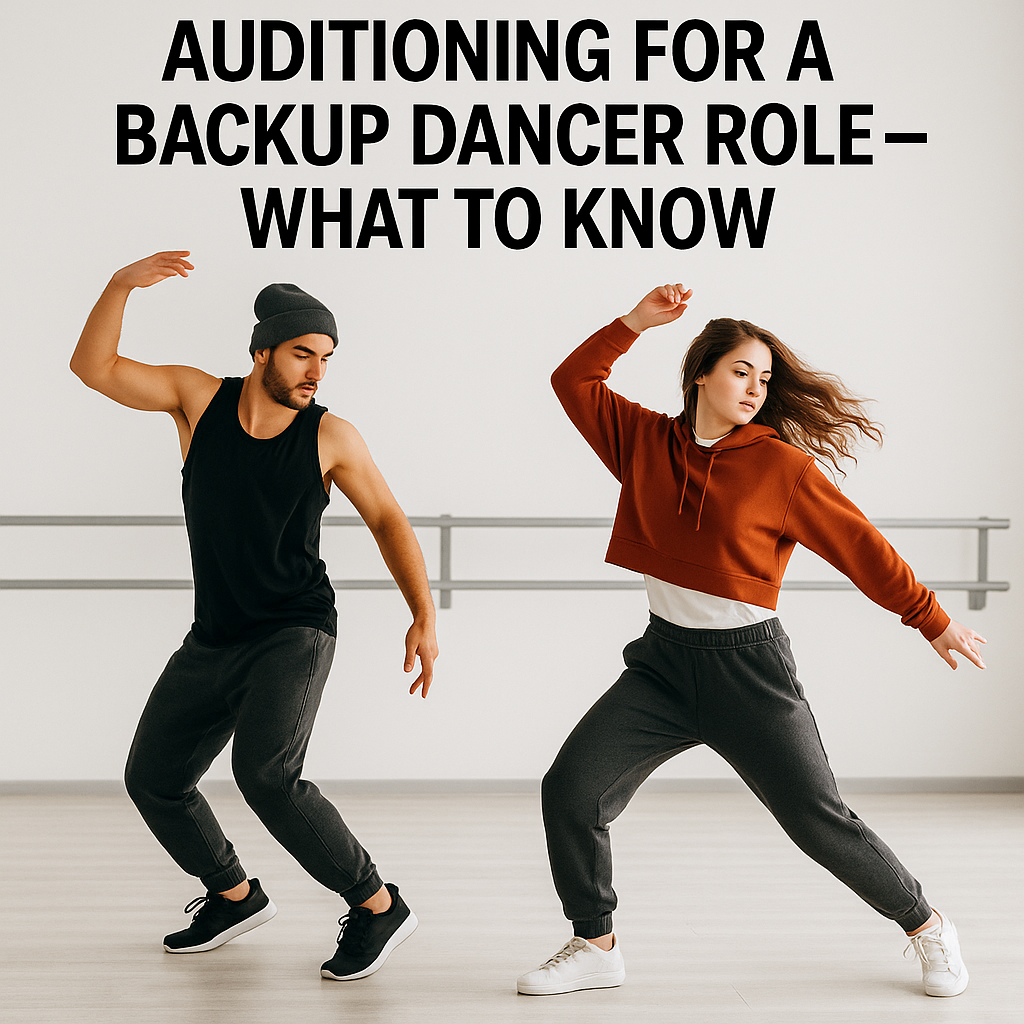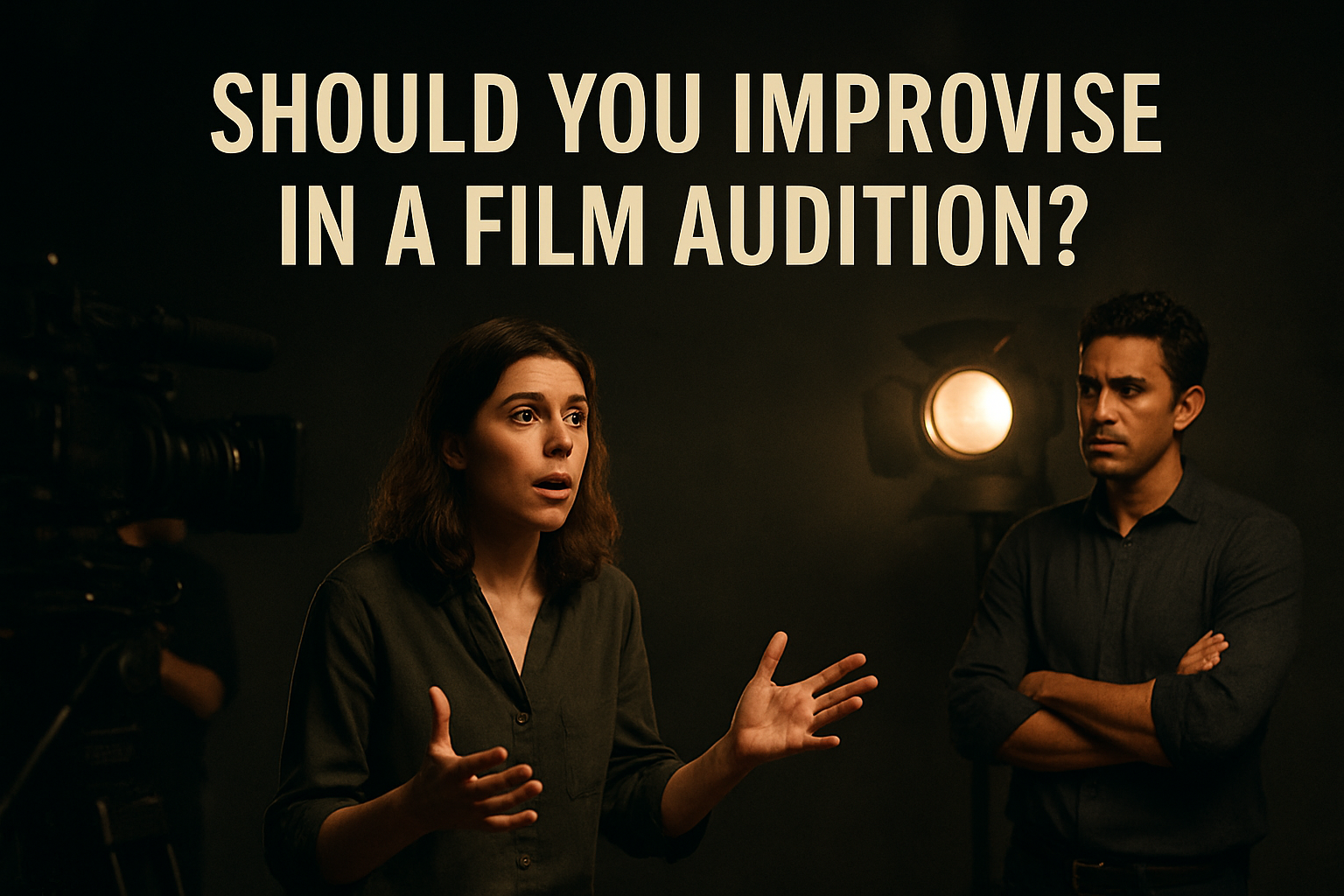
Film auditioning is one of the most thrilling yet anxiety-provoking moments of an actor's life. Whether you're an upcoming star or a veteran of the industry, each audition is an opportunity to demonstrate your talent, get acquainted with casting directors, and get that next big gig.
One question that always boggles actors is: "Should I improvise in a film audition?"
Is it bold and innovative? Or risky and unprofessional? The answer isn't yes or no — it relies on many variables. Let's dive into the dos and don'ts of improvising during an audition so you can make sure choices the next time you enter the room.
What Does Improvising in an Audition Mean?
Improv-ing in an audition is to extend beyond the written material — introducing your own lines, movements, responses, or even whole moments not written in the sides or script. It can be as deep as an additional pause or as extreme as a rearranged line.
Improvisation doesn't imply rewriting the whole scene. Instead, it implies doing something unique to your performance that may not be strictly scripted, but nonetheless is still in character and in context.
When Improvising Can Work for You
1. You're Asked to Improvise
This is the most obvious one. Occasionally, directors or casting directors will simply tell you to improvise. They may want to see how your brain works under stress or how quickly you can think creatively to add to a character.
If this is what they say—do it! Relax, trust your instincts, and keep it in the tone and reality of the script.
2. There's Room for Interpretation
If the script is minimal, open-ended, or vague — particularly in ads or independent films — a gentle injection of improvisation can make the character memorable. Something as simple as including a small physical gag or responding with an individual facial expression can add depth to the moment without overpowering the material.
Casting directors tend to favor actors who make clear choices, and a skillfully placed improv can be the key to getting noticed.
3. You Know the Character Well
If you've studied the character's history, motivations, and relationships, then you're well-positioned to improvise in character. On these occasions, subtle improvisations can illustrate your connection to the character and your emotional intelligence as an actor.
When Improvising Can Be Your Enemy
1. You Ignore the Script
In the majority of film auditions, the script is untouchable. Screenwriters, producers, and directors have slaved over creating specific language, tempo, and emotional beats. If you venture too far away from the script — particularly without permission — it may read as insulting or arrogant.
Unless specified otherwise, your task is to respect the writing. Radically rewriting lines, omitting major sections, or inserting lengthy monologues is a surefire way of being blacklisted.
2. It Becomes a Distraction
Improvisation should always serve the scene, not pull attention away from it. If your added bits don’t feel natural or seem forced, it can distract from your overall performance. Avoid improve that shifts the tone, makes the scene longer than it should be, or feels like a stand-up routine.
3. You’re Nervous or Unprepared
Some performers get caught up in the trap of improvising as a disguise for not being properly prepared. It seldom pays off. Aimless or unfocused improvisation can lead to you appearing unprofessional or half-hearted. It's better by far to give a well-rehearsed, clean reading than a disorganized or over-the-top improvised reading.
Pro Tips for Improvising Wisely at Auditions
Understand the Genre and Tone
Is it a dark drama? A rom-com? A slapstick? Improvising to tone is essential. A goofy ad-lib in the middle of a serious drama can be disorienting.
Don't Change the Story
Never change key story beats or results. Your improv should complement the story, not rehash it.
Make It Seamless
Great improv blends so well that it feels like part of the script. A subtle reaction, gesture, or throwaway line can be more effective than a big, obvious joke.
React, Don’t Hijack
Improv is often about reacting truthfully in the moment. Listen to your scene partner (even if it’s a reader), and let your responses flow naturally.
Ask If You’re Unsure
If you find yourself wanting to improvise but aren't sure if it's okay, ask the casting director. A good "Would you mind if I play a little with the lines?" demonstrates professionalism and respect.
Be Prepared to Do It Both Ways
If you decide to improvise on your first take, be prepared to perform it word for word on the next. Casting directors frequently want to see both.
What Casting Directors Say
Most casting professionals enjoy actors who introduce authenticity and spontaneity, provided that the essence of the script is intact. They want actors to bring the page to life — not rewrite it.
Casting director Marci Liroff has said:
"If your improv is brilliant, I'll remember you. If it's off-base, I'll think you don't understand the material."
To Improvise or Not to Improvise?
The short answer? Yes, but carefully.
Improvisation can take your audition to a higher level when approached wisely and in harmony with the tone and character of the script. But careless or ego-based improve can sabotage your chance and ruin your reputation.
When unsure, stay true to the script — and let your preparation, emotional truth, and presence speak for themselves. Keep in mind, good acting is more often about less, and more about relating deeply.
Next time you enter an audition room, take a moment to ask yourself:
"Am I telling the story or stealing the show?"
Let your heart — and your skills — guide the way.
Quickly learning choreography is an essential skill for dancers, performers, musical theatre talent, and even actors who are requested to learn movement in auditions. If you're rehearsing for a stage show, music video, or dance audition, the ability to learn choreography in a hurry can make your performance either a triumph or a disaster—and usually decides if you get the job.
In the entertainment and creative sectors—whether you're an actor, model, filmmaker, dancer, or content creator—a properly edited showreel can be your passport to scoring thrilling projects. It's your showreel visual resume. In contrast to your written CV, your showreel instantly displays casting directors, producers, or clients what you can do within 1–2 minutes.
Auditioning is the door into acting, be it entering the high-energy arena of advertising or the emotionally rich universe of film. But even though the essentials of acting—presence, expression, timing—never change, expectations and procedures vary immensely between commercial and film auditions. Knowing these essential variations can assist actors in preparing more effectively and adjusting their performances for each arena.
Auditioning for a backup dancer role is an exciting opportunity that can open doors to performing with top artists, appearing in music videos, touring internationally, and gaining industry recognition. But it’s also one of the most competitive and demanding audition types in the entertainment world. Whether you're auditioning for a big-name pop star or an up-and-coming artist, knowing what's required and how to prepare can be the difference between fitting in and landing the gig.
Lights Camera Audition!
Don't miss out on the latest updates, audition calls, and exclusive tips to elevate your talent. Subscribe to our newsletter and stay inspired on your journey to success!
